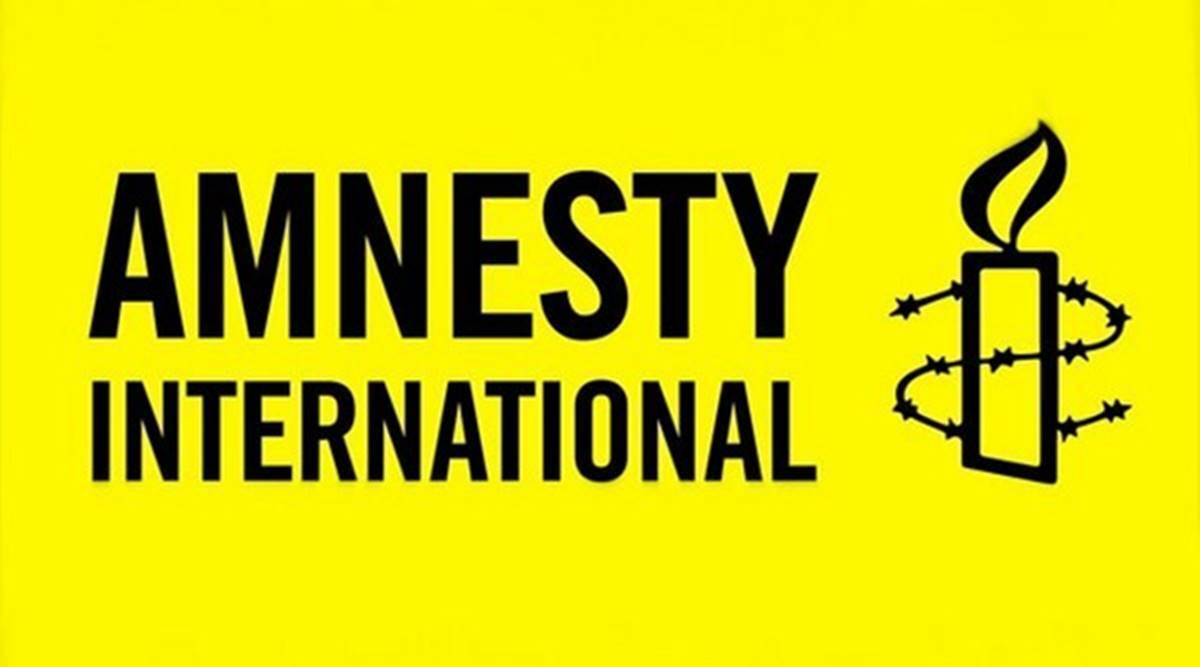
The global human rights organisation issued a statement debunking the “false rumours” and “inaccurate media stories”, and stressing that it “categorically stands by” the findings of the investigation.
The BJP on Thursday denounced the global Pegasus Project media investigation as “fake news” and “yellow journalism”, and claimed that Amnesty International had said that the list of phone numbers suspected to be under surveillance was not directly related to the Israeli company NSO Group.
The global human rights organisation, however, issued a statement debunking the “false rumours” and “inaccurate media stories”, and stressing that it “categorically stands by” the findings of the investigation.
At a press conference at the BJP headquarters on Thursday afternoon, Minister of State for External Affairs Meenakshi Lekhi claimed that Amnesty had “denied that the list which is floating around is not the actual list”.Around the same time, Amnesty said: “Amnesty International categorically stands by the findings of the Pegasus Project, and that the data is irrefutably linked to potential targets of NSO Group’s Pegasus spyware. The false rumours being pushed on social media are intended to distract from the widespread unlawful targeting of journalists, activists and others that the Pegasus Project has revealed.”
The list of possible targets of surveillance by government clients of NSO Group’s Pegasus spyware was obtained by Amnesty International along with the French journalism nonprofit Forbidden Stories, and shared with 17 media partners around the world, including The Guardian in the United Kingdom, The Washington Post in the United States, Le Monde in France, and The Wire in India.
For the last five days, these media organisations have been publishing reports based on the leaked list as part of their ‘Pegasus Project’ investigation.
Lekhi alleged that the “chronology” of the events around the publication of the reports indicated that it was part of efforts to defame India and to derail the legislative process in Parliament.
“Repeatedly this kind of narrative is built only to damage the reputation of India so that the new ecosystem which the government is trying to create to secure the data of Indians and to secure and build an ecosystem which is protective of Indian data and rights of Indian people,” Lekhi said.
“To damage all that, these kinds of things are created… In addition to that Parliament is in session, several new laws are to be brought in. Any decent debate on the Corona crisis will show the previous governments in poor light and the opposition-ruled states in poor light. To avert the arguments in favour of the government, this story is being depended upon,” she alleged.
“This is not a story,” Lekhi said. “This is a non-starter across the globe, because based on a concocted, fabricated, evidence-less story, nobody does a story. Because that story itself calls for forgery and defamation. Leaked data is an offence and that leads to further complications for people who base their stories on leaked data. It only happens in India,” she said.
“The published story is based on a list of numbers available in any directory. Second, Amnesty International has denied this. The company (NSO) which manufactures Pegasus has said that these claims are uncorroborated and do not tally with their customer base,” she added.
Lekhi’s statements were based on reports that appeared on some websites, claiming that Amnesty International has said that it had never presented the list of phone numbers as an ‘NSO Pegasus Spyware List’.
Late on Wednesday, Kim Zetter, a US investigative journalist, tweeted a purported translation from an article published in Hebrew: “Amnesty International has never presented this list as a NSO Pegasus Spyware List, although some of the world’s media may have done so..list indicative of the interests of the company’s clients.”
After this was picked up by some media organisations, Zetter tweeted Thursday, “Amnesty is now saying the Hebrew story in which their statement appeared misreported what they said. This means the English translation of that statement which I included in my tweet at the top of this thread was also incorrect.
“I should note that I had asked the Amnesty spokeswoman to provide me with an English version of the Hebrew statement that had been given in Israeli media. She never sent me the statement. Had she sent me the statement, we would have seen that the Israeli article had misquoted it,” Zetter said.
In its rebuttal, Amnesty said it was responding to “false allegations on social media and inaccurate media stories in relation to the Pegasus Project”.
The Wire said that it had spoken to Gil Naveh, spokesperson of Amnesty International Israel, “who confirmed that the organisation’s Hebrew statement had been wrongly reported by a section of the media in Israel and is being wrongly quoted in English”.
On reports that Amnesty had said that the list of numbers was only “indicative” of NSO customers, The Wire wrote that Naveh had told the news portal that “this is a mistranslation, and that what he had said in his statement is that this is a list of numbers that the company’s customers’ have expressed interest in, which includes journalists and human rights activists, political rivals, lawyers and so on”.
Lekhi, who headed the Joint Parliamentary Committee on the Personal Data Protection Bill, claimed that the Pegasus reports are linked to the report of the committee, which has already been submitted to the Speaker.
“Data protection is going to become the law of the land. This is directly related to that. This is to undermine Indian institutions that such kinds of stories are being floated,” she alleged.





















